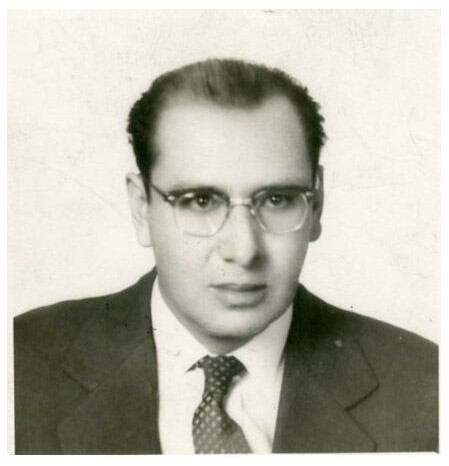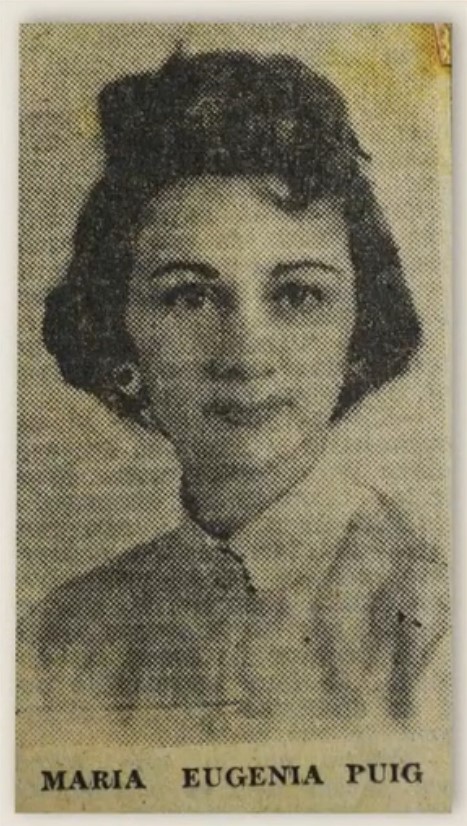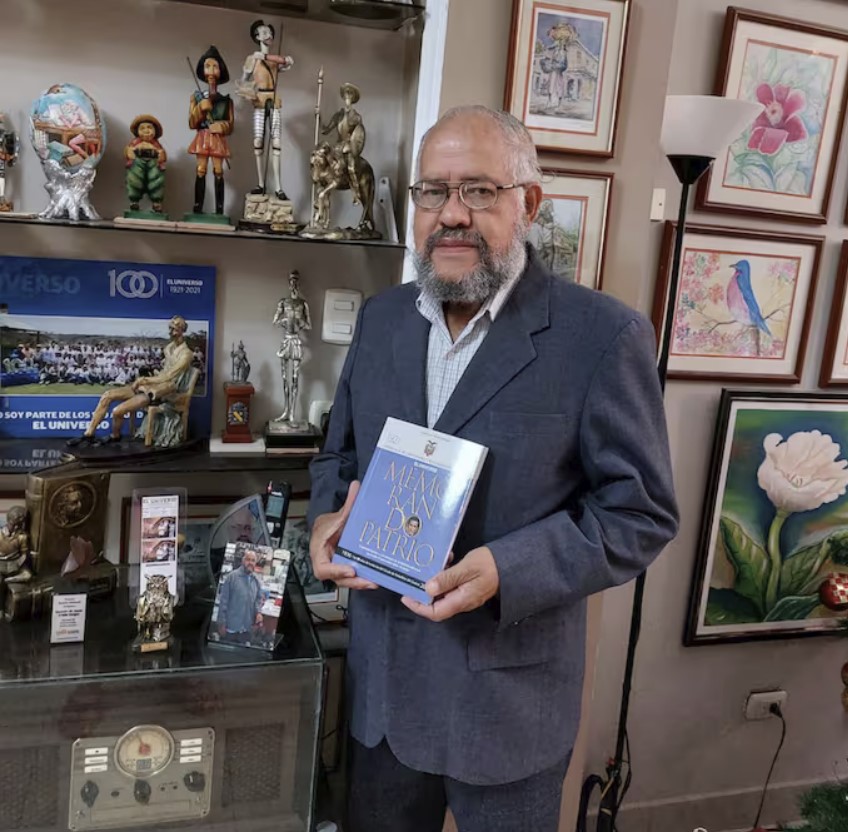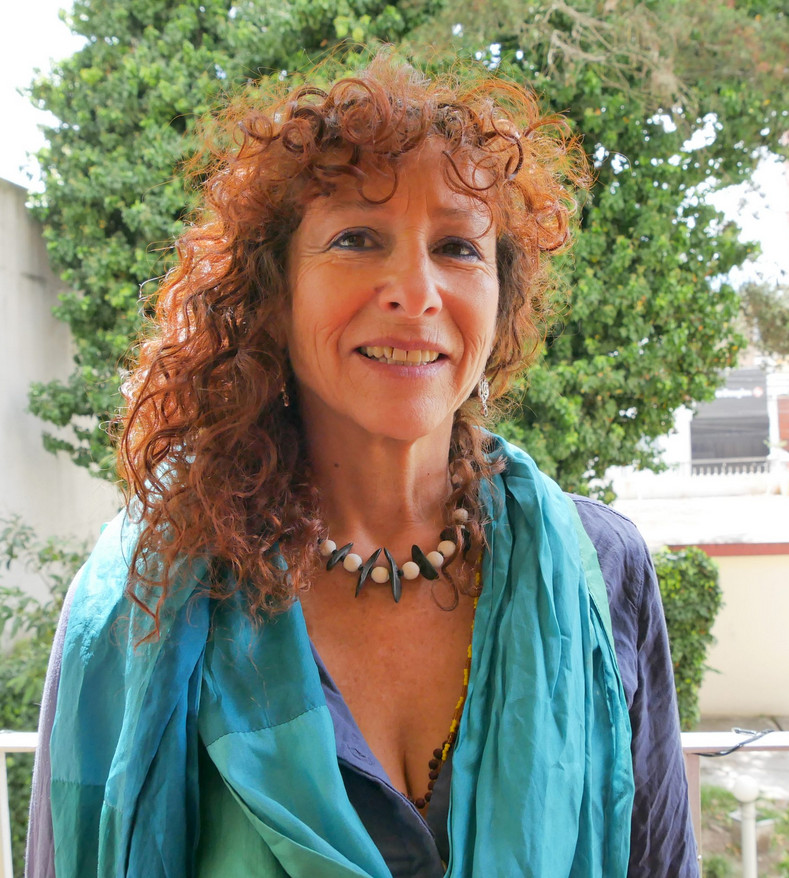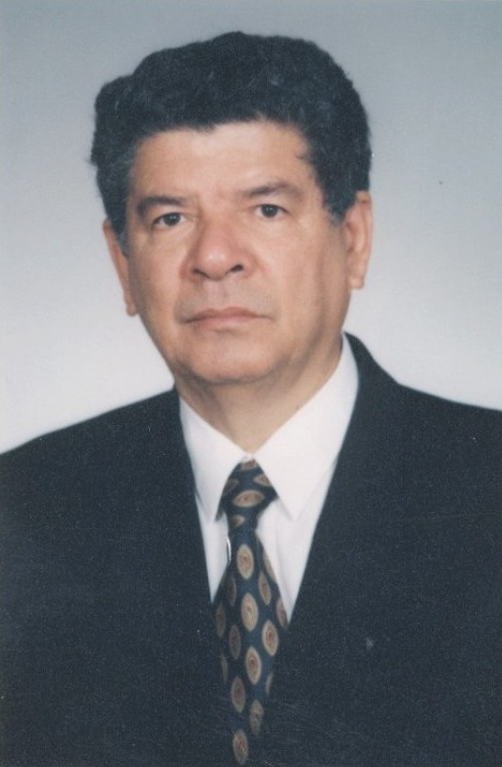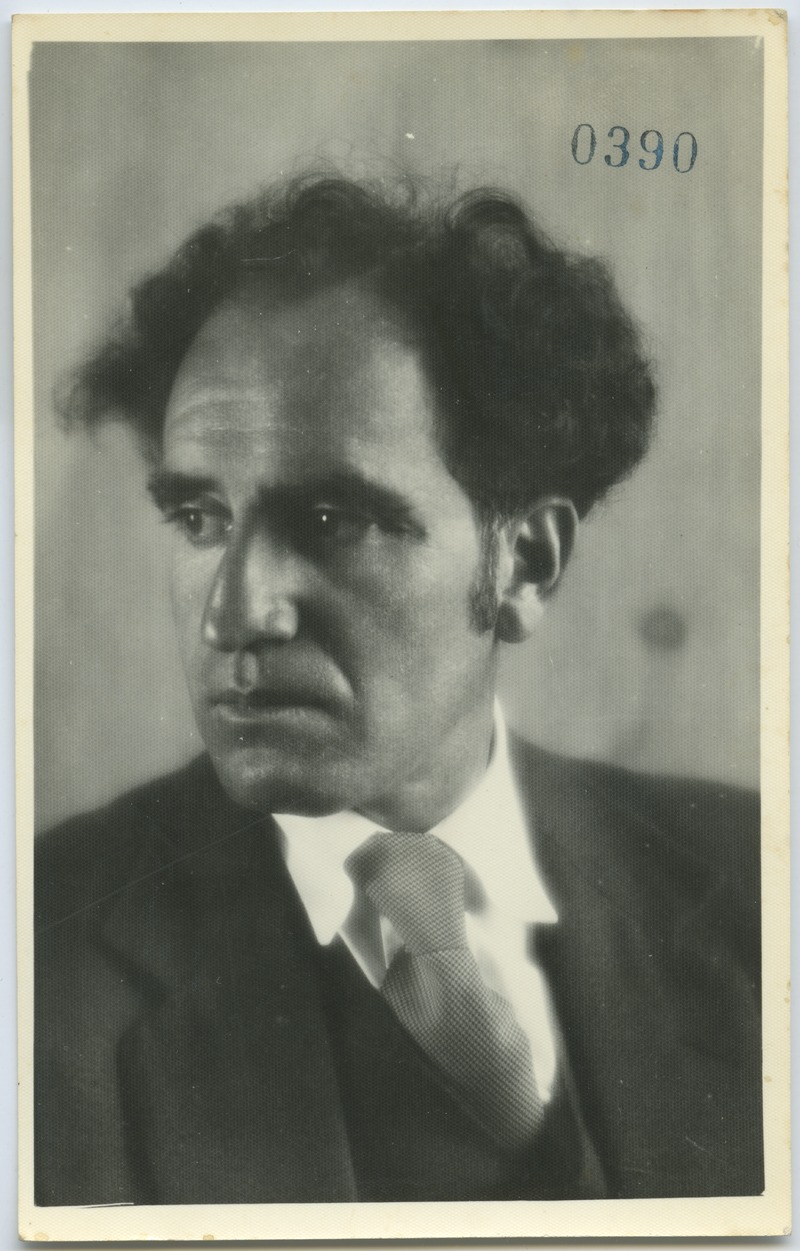Ana María Goetschel Garzón is an Ecuadorian historian and professor emerita at FLACSO Ecuador. She holds a Ph.D. in Social Sciences from the University of Amsterdam and a Master’s in Andean History from FLACSO Ecuador. Her research focuses on the history of women, education, and gender studies, particularly exploring the origins of feminism and the role of punitive action in Ecuadorian history. She has authored several influential works, including Moral y orden: La delincuencia y el castigo en los inicios de la modernidad en Ecuador (2019) and Cartas Públicas de Mujeres Ecuatorianas (2013), and has received numerous accolades, including the Premio Manuela Sáenz in 2019.
Continue reading “Ana María Goetschel”Posts
Hugo Vásquez Almazán
Hugo Vásquez Almazán (Guayaquil, April 29, 1936 – Guayaquil, May 6, 2008) was an Ecuadorian priest, theologian, poet, and author of over 90 works. He is best known for his significant contributions to the Schoenstatt Movement in Ecuador. As one of its founders, he played a crucial role in spreading the teachings of Father Joseph Kentenich, whom he met personally in 1965. Father Hugo was the first Latin American priest admitted to the Institute of Schoenstatt Diocesan Priests and authored several notable works, including Nuestra contribución al cielo and Pondo: Poemas. His legacy extends into both religious and literary fields, and he was posthumously featured in several anthologies. He also served as a professor at the Catholic University of Guayaquil.
Continue reading “Hugo Vásquez Almazán”José Ayala González
José Ayala González (Guayaquil, August 2, 1885 – June 20, 1974) was an Ecuadorian poet, farmer, and public servant. Known for his romantic and nostalgic poetry, he contributed to various publications and published a collection of his works titled La Noche Avanza. Raised in a cultured and prosperous family, Ayala González spent much of his life managing agricultural estates and held several public offices, including Chief Political Officer of Babahoyo and Vice President of the Consejo Provincial de Los Ríos. His work remained within the Romantic tradition, and while newer literary movements had emerged, his poetry continued to reflect deep emotions and connections to rural life, showing a strong attachment to the past.
Continue reading “José Ayala González”Gilberto Molina Correa
Gilberto Molina Correa (Cañar, September 20, 1915 – Unknown) was an Ecuadorian poet, novelist, playwright, short story writer, essayist, and educator. His diverse body of work spanned multiple genres, including notable contributions such as the novel Sismos y abismos (1969), the short story collection Almas conturbadas (1962), and the play Censo sin consenso (1962). He also authored the poetry collection La inefable presencia (1966). He was an influential advocate for educational reform and a school director, serving as head of Escuela Municipal “Joaquín Donoso” in Vinces. Molina Correa left a lasting mark on both Ecuadorian literature and education.
Continue reading “Gilberto Molina Correa”Néstor Campuzano Mendoza
Néstor Campuzano Mendoza (Guayaquil, February 7, 1926 – Unknown) was an Ecuadorian poet and intellectual best known for writing the lyrics to the anthem of Universidad Laica Vicente Rocafuerte. His literary career, marked by a deep sensitivity and mastery of sonnets, earned him notable recognition, including the ‘Estrella de Octubre’ award in 1956 for his Soneto a Cristo. His works, such as Horas Milagrosas, Trigal Azul, and Elegía del Ayer, reflect a melancholic and philosophical outlook on life. He is remembered as a revered figure in Ecuadorian literature for his contributions to poetry and cultural heritage.
Continue reading “Néstor Campuzano Mendoza”Manuel Nicolás Arízaga
Manuel Nicolás Arízaga Machuca (Cuenca, December 12, 1856 – December 28, 1906) was an Ecuadorian lawyer, poet, journalist, and politician. Born into a prominent family, he became known for his involvement in revolutionary activities against the dictatorship of Ignacio de Veintemilla and later served as a Deputy in Ecuador’s National Convention. A prolific writer, he contributed poetry, essays, and political articles to numerous publications, often advocating conservative ideals and Ecuadorian nationalism. Arízaga spent multiple periods in exile, where he continued his literary work, including the collection Voces del Destierro. His literary and political contributions left a lasting impact on Ecuadorian intellectual and public life.
Continue reading “Manuel Nicolás Arízaga”María Eugenia Puig
María Eugenia Puig Lince (Guayaquil, August 2, 1919 – Quito, February 4, 2001) was an Ecuadorian poet, intellectual, and diplomat. She co-founded the Grupo Cultural “Oasis” in 1955 alongside Rosa Borja de Ycaza and Zoila Luisa Campodónico de Caputti, and served as its director, documenting the group’s activities in the magazine “Oasis.” She was also a key figure in founding the Pan-American Women’s Round Table of Ecuador, advocating for women’s cultural involvement. Her legacy is honored through the Museo Municipal de Arte “María Eugenia Puig Lince,” inaugurated in Guayaquil in 2013.
Continue reading “María Eugenia Puig”María Leonor Madinyá Andrade
María Leonor Madinyá Andrade (Guayaquil, February 15, 1936 – Guayaquil, September 7, 2006) was an Ecuadorian poet known for her deeply introspective and melancholic poetry. Despite becoming blind at the age of 22, she mastered Braille and continued her literary pursuits, becoming an advocate for the blind. Her works, such as Palpitar de un sueño (1966) and Ventana del Alba (1968), are celebrated for their emotional depth and spiritual themes. Madinyá also hosted the long-running radio program Música y Poesía, promoting poetry in Ecuador for over two decades.
Continue reading “María Leonor Madinyá Andrade”Luis Cisneros Noriega
Luis Cisneros Noriega (Riobamba, 1908 – 1987) was an Ecuadorian poet, composer, and pianist. He published several poetry collections, including Cúpulas en la nieve (1960), Pinceladas (1975), Blancuras (1977), and Presencia (1983). As a composer, he created notable pieces such as the pasodoble “Quito“ and the popular song “Chola Cholita.” Cisneros Noriega also worked as a pianist at Radio El Prado in Riobamba during the 1930s, contributing to the promotion of Ecuadorian music and culture. A street in Pastaza and a school in Chimborazo are named in his honor.
Continue reading “Luis Cisneros Noriega”Germán Arteta Vargas
Germán Arteta Vargas (Guayaquil, Ecuador, 1940) is a prominent Ecuadorian historian, journalist, educator, and author. Known for his dedication to preserving Ecuadorian history and culture, he has published several influential works, including Guayaquil nostálgico (2009), Cantos a Guayaquil (2011), and Qué chévere (2012). His writing often focuses on civic education, folklore, and national identity. In 2019, he was inducted as a Corresponding Member of the National Academy of History in recognition of his contributions to the historical and cultural heritage of Ecuador.
Continue reading “Germán Arteta Vargas”Elías Candel Espinoza
Elías Candel Espinoza (Guayaquil, 1896 – 1983) was an Ecuadorian journalist, poet, and coplero, known by his pen name Adel Celinas. By the 1930s, his coplas were appearing in El Universo newspaper, alongside the caricatures of Virgilio Jaime Salinas and the column Los Jueves Alegres by José Antonio Campos Maingon. Over the decades, he continued writing for the paper, producing poems and verses, including a notable tribute to tennis legend Pancho Segura in the 1950s. His poem La gran fecha was later included in the anthology Cantos a Guayaquil (2011).
Continue reading “Elías Candel Espinoza”María Eugenia Paz y Miño
María Eugenia Paz y Miño (Quito, Ecuador, 1959) is an Ecuadorian writer and anthropologist known for her contributions to literature and cultural studies. She has published notable works across various genres, including the acclaimed novel La puerta del Ilaló (2008) and the political thriller Que no quede huella (2020). Paz y Miño’s writing often intertwines her anthropological background with her literary pursuits, exploring themes of culture, politics, and human relationships. She has received several prestigious awards, such as the Rumiñahui de Oro and the Fondo Editorial del Ministerio de Cultura del Ecuador.
Continue reading “María Eugenia Paz y Miño”Rodolfo Bueno Ortiz
Rodolfo Bueno Ortiz (Esmeraldas, 1937) is an Ecuadorian mathematician, writer, and intellectual. He became the first Ecuadorian to earn a degree in mathematics after studying in the Soviet Union, where he also developed a deep interest in literature. Bueno is the author of several works, including Pasiones a la sombra del Kremlin (1999), a novel that explores themes of desire and power against the backdrop of Soviet life, and Mojiganga (2011), a political satire. He has also written extensively on historical and political topics, blending his scientific rigor with philosophical and social commentary, and was awarded the Pushkin Medal in Russia for his cultural contributions.
Continue reading “Rodolfo Bueno Ortiz”Rigoberto Cordero y León
Rigoberto Cordero y León (Cuenca, June 11, 1916 – Cuenca, August 1998) was an Ecuadorian poet, writer, and scholar whose work significantly contributed to the development of Ecuadorian literature. Known for his extensive body of poetry, biographies, and essays, his writings explored themes of music, culture, and national identity, and were translated into multiple languages. Cordero y León received numerous awards, including the Fray Vicente Solano Decoration, and curated anthologies that highlighted the richness of Cuenca’s literary tradition.
Continue reading “Rigoberto Cordero y León”Gertrudis de San Ildefonso
Sor Gertrudis de San Ildefonso (Quito, 1651 – Quito, January 29, 1709) was a revered Ecuadorian nun, mystic, and writer known for her role in promoting the cult of Nuestra Señora del Amparo in colonial Quito. Born Gertrudis Dávalos y Mendoza, she entered the Order of Saint Clare at seventeen, where she experienced mystical visions and helped unveil a miraculous image of the Virgin Mary. A prolific writer of religious texts, including hymns and prayers, her work contributed to Quito’s artistic and spiritual heritage, and she was declared venerable for her devout life and lasting influence.
Continue reading “Gertrudis de San Ildefonso”